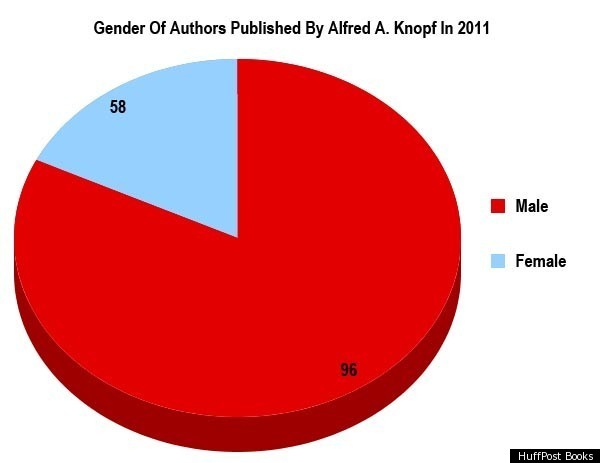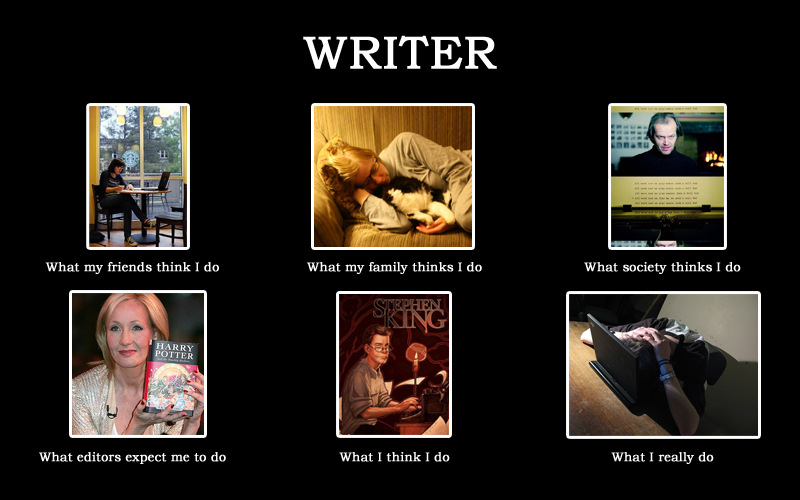Correlation and Causation: Regarding Gender Discrimination Claims in Publishing
My cousin shared a Huffington Post article with me and I thought I'd share it - and my thoughts on it - here. After all of the courses I've taken in Women's Studies, this article and the statistics it presents concerns me, however, the analytical side of me wonders if this article is forgetting that "correlation does not imply causation."
Are Book Publishers To Blame For Gender Discrimination?
This is a big claim to make just based on publishing numbers.
There has been a struggle between the gender binary for centuries upon centuries and only in the past 100 years have women finally been gaining a voice, especially in the publication of literary fiction. So do these statistics reflect discrimination or do they reflect progress? Additionally, could these statistics represent an underlying discrimination outside of the publishing realm that somehow prevents women from even writing the same amount of literary fiction as men, therefore limiting publishers to submissions from men and women that reflect the publishing statistics?
The only way to really get a better idea of why the numbers are so apparently biased towards male literary fiction authors is to have access to the data on the actual manuscript submissions these publishers receive. Two examples to illustrate how this information is important:
Without the submission/acceptance/
Note: The two scenarios above are very basic and the reality is probably much more complex, but I wanted to keep the math simple in order to make my point clearly.
My cousin shared a Huffington Post article with me and I thought I'd share it - and my thoughts on it - here. After all of the courses I've taken in Women's Studies, this article and the statistics it presents concerns me, however, the analytical side of me wonders if this article is forgetting that "correlation does not imply causation."
Are Book Publishers To Blame For Gender Discrimination?
[The Huffington Post] took a look at all of the books published in 2011 by four of the major imprints - Knopf, Crown, Little, Brown and Farrar, Strauss and Giroux - and tallied the authors by gender. These publishers were chosen for their focus on literary fiction - the types of books typically reviewed by places like The New York Times Book Review and The Atlantic. We only included hardcovers in our count for the same reason.
What [they] found (see below) was that the gender ratios of books published by these imprints are in a few cases almost identical to those of the publications cited in Vida's survey [Ed. Note: Vida's survey showed that reviews of literary fiction written by men far outpaced reviews of literary fiction written by women]. If the gender representation in major publications is to change, and we believe it should, then perhaps that also requires a shift either in the mindset of the more "literary" publishers, or a broadening of the books and publishers whose work is covered by the media.
 |
| Pie chart by Huffington Post. |
This is a big claim to make just based on publishing numbers.
There has been a struggle between the gender binary for centuries upon centuries and only in the past 100 years have women finally been gaining a voice, especially in the publication of literary fiction. So do these statistics reflect discrimination or do they reflect progress? Additionally, could these statistics represent an underlying discrimination outside of the publishing realm that somehow prevents women from even writing the same amount of literary fiction as men, therefore limiting publishers to submissions from men and women that reflect the publishing statistics?
The only way to really get a better idea of why the numbers are so apparently biased towards male literary fiction authors is to have access to the data on the actual manuscript submissions these publishers receive. Two examples to illustrate how this information is important:
(1) Publisher A receives 232 submissions in a year from women and 192 submissions in the same year from men. This publisher accepts and publishes 58 from the women and 96 from the men. That is a 1-in-4 acceptance/publication rate for women and 1-in-2 acceptance/publication rate for men. In this instance, there is likely a problem at the publishing level.
(2) Publisher A receives 116 submissions in a year from women and 192 submissions in the same year from men. This publishers accepts and publishes 58 from the women and 96 from the men. That is a 1-in-2 acceptance/publication rate for BOTH groups. In this instance, there is no discrimination occurring at the publishing level.
Without the submission/acceptance/
Note: The two scenarios above are very basic and the reality is probably much more complex, but I wanted to keep the math simple in order to make my point clearly.

















